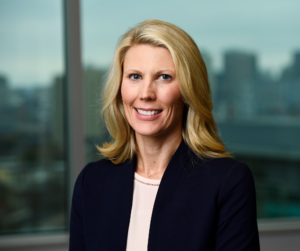About the Conference
A virtual colloquial series of events throughout Disability Community Month, Toward an Anti-Ableist Academy invites the campus community to learn more about creating a welcoming University climate that actively works toward embracing disability culture and experiences. Ableism is defined as discrimination and social prejudice against people with disabilities and/or people who are perceived to be disabled.
These virtual events encourage open dialogue and discussion with students, staff, faculty and disability experts, providing opportunities to learn about best practices that ensure the disabled community can fully participate in campus life at the University of Michigan.
The conference was created to provide an update on the work of the Student IDEA (Inclusion, Diversity, Equity, and Accessibility) Board, their recommendations and the ongoing work to implement them. The charge of the Student IDEA Board was, broadly, to assess the current state and capacity of the University’s infrastructure to support and include students who are, or may become, impacted by barriers within the University and/or the University culture regarding disability and accessibility.
This title was chosen by the thirteen members of the planning committee for The Student IDEA Board conference. We brainstormed ideas for a conference title reflective of the progress made and much work to be done on reducing and eliminating accessibility gaps for disabled students, faculty, and staff. This title is indicative of the forward movement towards disability inclusion on campus.
OCTOBER 29 | Kickoff Event & Keynote
Keynote Speaker: Dr. Bonnielin Swenor
Tuesday, October 29, 2024 | 11am – 12pm EST | Hybrid: in-person and virtual option
For those attending in person:
12 – 1pm EST Lunch will be provided;
1 – 1:30pm EST Networking
 Dr. Bonnielin K. Swenor is the Endowed Professor of Disability Health and Justice at Johns Hopkins University, holding joint appointments at the Johns Hopkins Schools of Medicine, Nursing, and the Bloomberg School of Public Health. She is also the founder and director of the Johns Hopkins Disability Health Research Center, which focuses on shifting the perspective from “living with a disability” to “thriving with a disability” through data-driven approaches. Dr. Swenor’s work is informed by her personal experience with disability, driving her commitment to advancing equity and inclusion for people with disabilities, particularly in STEM fields.
Dr. Bonnielin K. Swenor is the Endowed Professor of Disability Health and Justice at Johns Hopkins University, holding joint appointments at the Johns Hopkins Schools of Medicine, Nursing, and the Bloomberg School of Public Health. She is also the founder and director of the Johns Hopkins Disability Health Research Center, which focuses on shifting the perspective from “living with a disability” to “thriving with a disability” through data-driven approaches. Dr. Swenor’s work is informed by her personal experience with disability, driving her commitment to advancing equity and inclusion for people with disabilities, particularly in STEM fields.
An internationally recognized expert on disability data, Dr. Swenor has provided expertise to several leading organizations, including the World Health Organization, the White House Office of Science and Technology Policy, the National Academy of Sciences, Engineering, and Medicine, the National Institutes of Health, and the National Governors Association. Her contributions are widely acknowledged in the academic community, with her research published in renowned journals such as The New England Journal of Medicine, The Journal of the American Medical Association, and The Lancet.
In addition to her academic work, Dr. Swenor has been featured in various media outlets, including The New York Times, The Washington Post, and TIME magazine. She is also known for translating her research into impactful policy changes. Notably, her advocacy contributed to the National Institutes of Health’s designation of people with disabilities as a health disparity population, highlighting her role in shaping national health policy.
Presenter: Dr. Bonnielin Swenor
OCTOBER 30 | Lessons Learned from the Voices of Students with Disabilities
OCTOBER 30 | Becoming Dis-fabled: Embracing Responsible Storytelling as Community Care
OCTOBER 31 | Cripping the Syllabus: Using Crip Theory to Redefine Access and Accommodation
OCTOBER 31 | Disability Culture in Comics: Finding and Telling Our Own Stories Our Own Ways
All conference sessions will have CART and ASL provided. If you will be using a screen reader or have other accessibility needs, please contact disabilityconfinfo@umich.edu.

